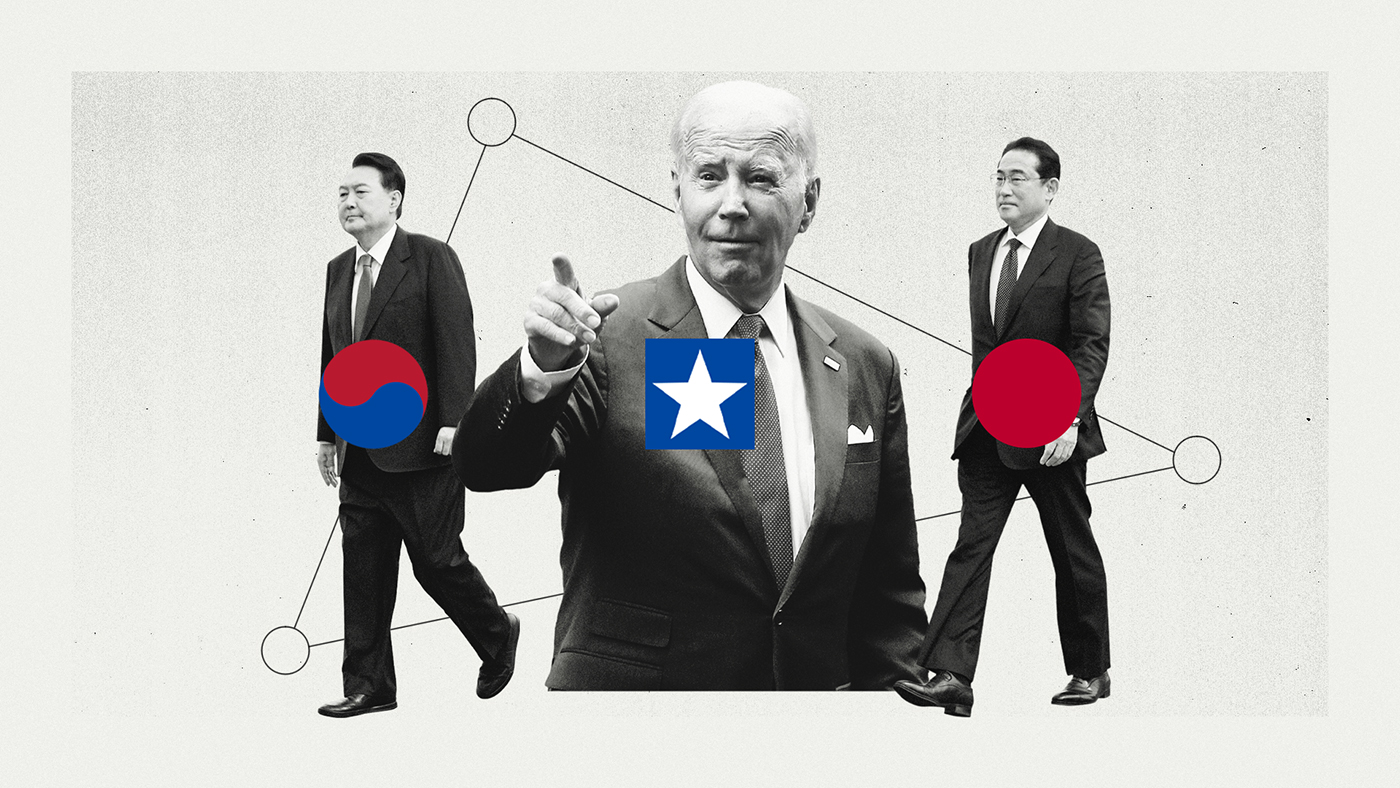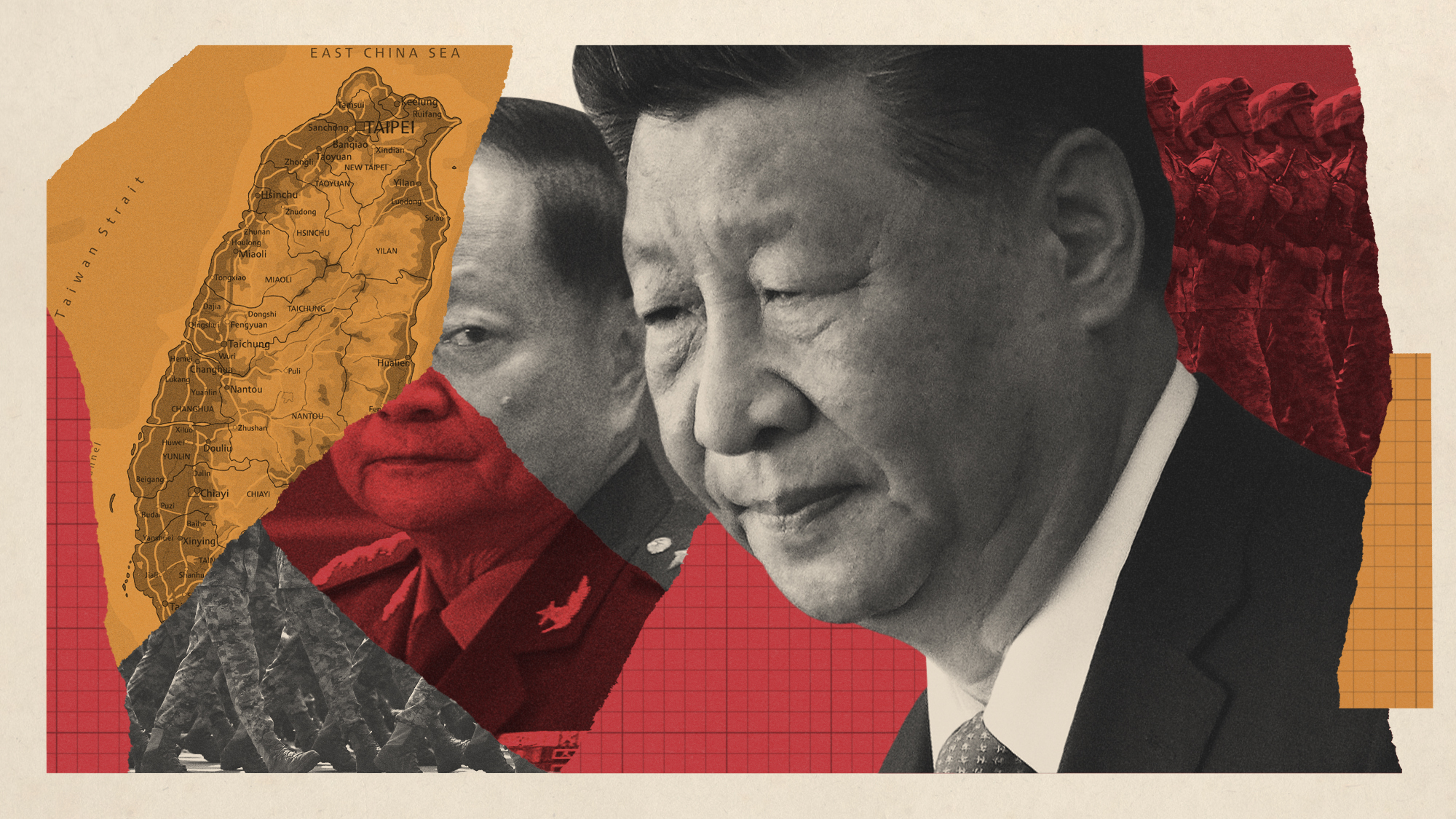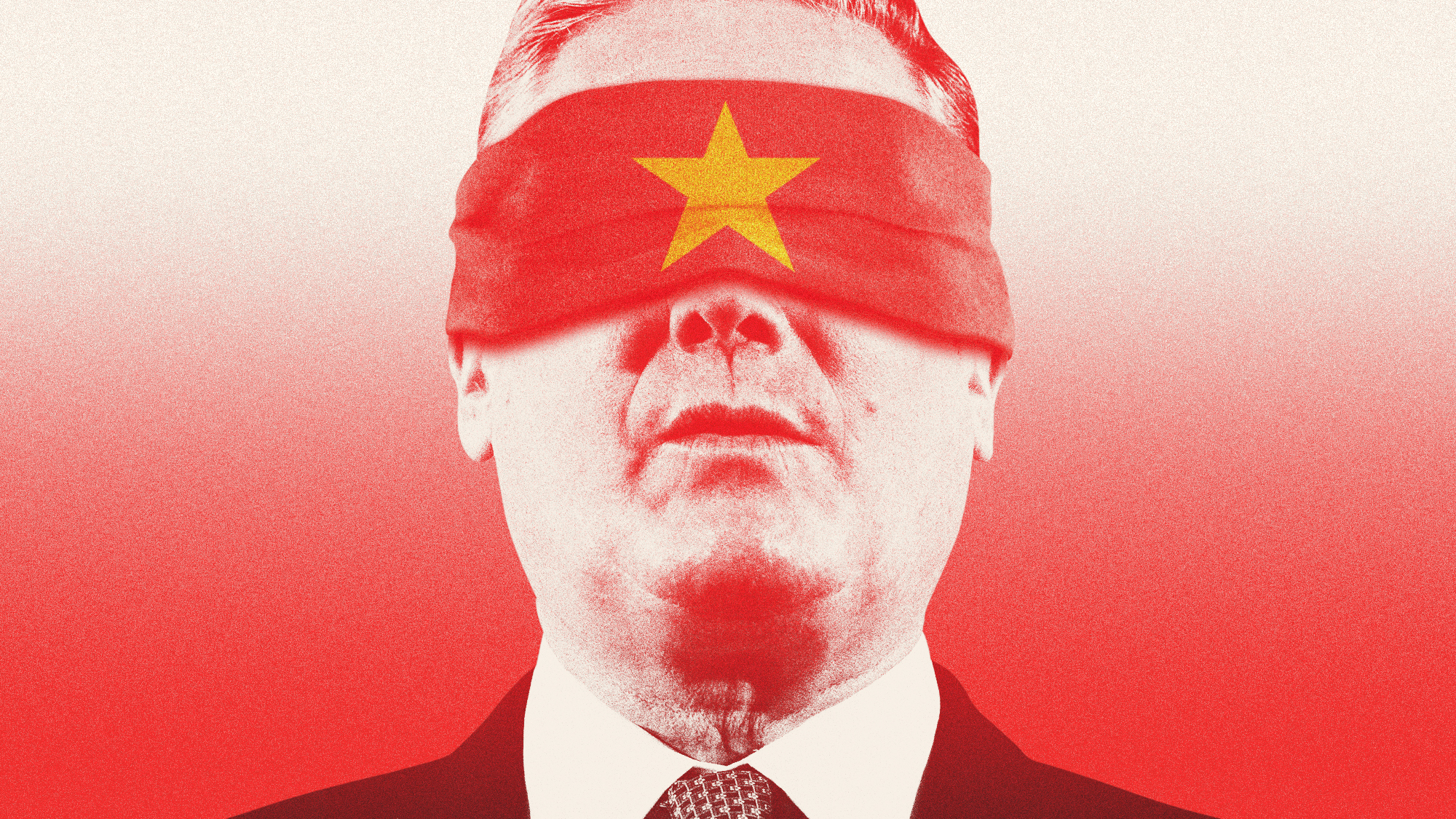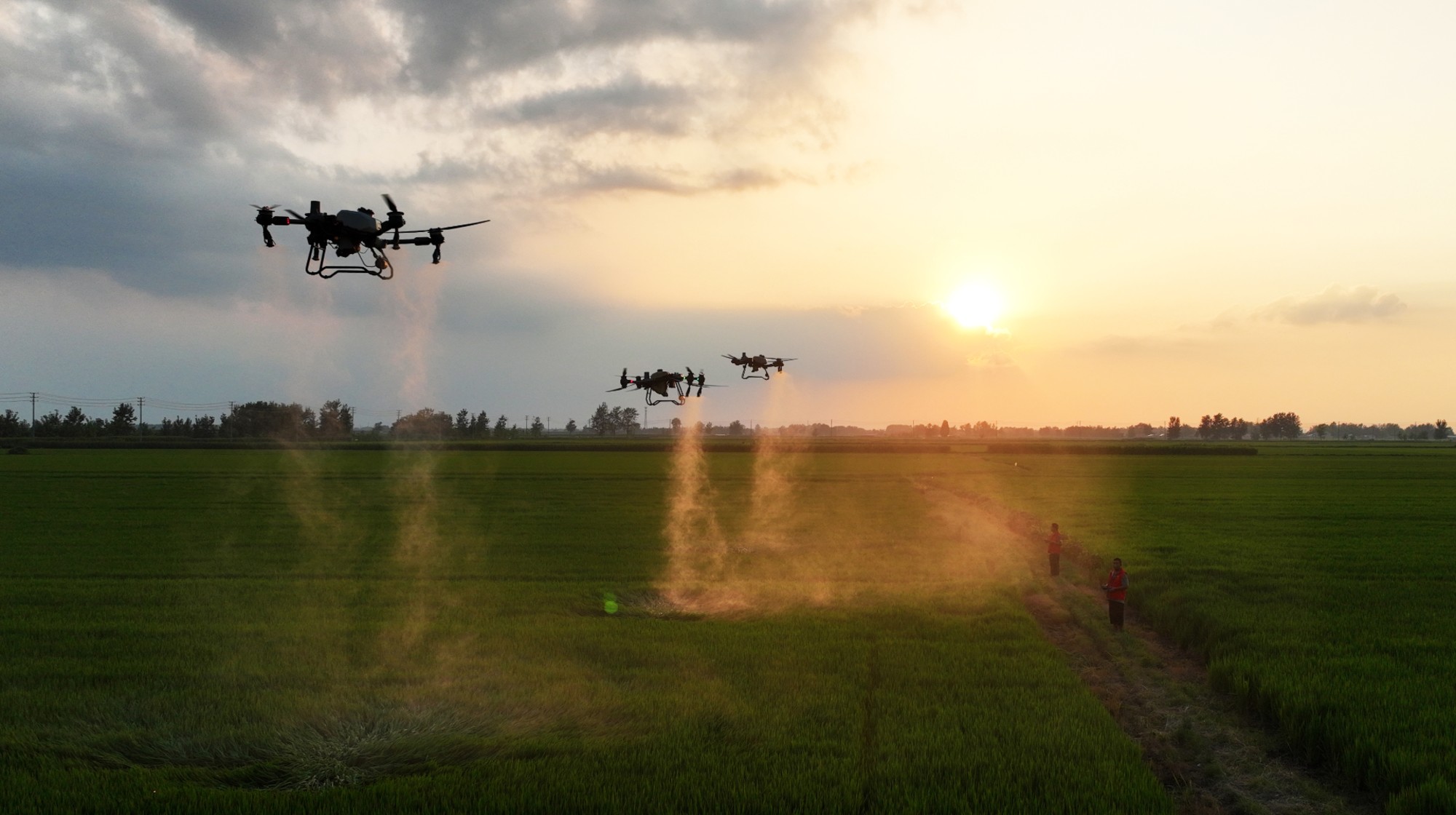Is the US creating a mini NATO in Asia?
The summit with Japan and South Korea will strengthen military cooperation in the Pacific


A free daily email with the biggest news stories of the day – and the best features from TheWeek.com
You are now subscribed
Your newsletter sign-up was successful
There are two questions on the agenda as President Joe Biden hosts a trilateral summit at Camp David this weekend with the leaders of Japan and South Korea, Fumio Kishida and Yoon Suk Yeol, respectively. Can Biden draw the two countries, which have a long history of enmity and warfare, into a fruitful alliance? And will that alliance become a "mini NATO" located in Asia?
The U.S. has been allied with both countries individually, The New York Times reported, but there are "historic animosities" stemming from Japan's "brutal" decades-long occupation of the Korean peninsula ending in 1945. But Yoon has made "moves toward rapprochement" that have led to hopes for a "closer, more enduring alignment." That new alignment would include a "commitment to consult" on security threats.
Such a commitment has drawn the ire of Chinese officials and foreign policy experts who see the arrangement as a mini NATO alliance intended to cement American dominance in Asia, China's Global Times reported. Voice of America added that North Korean officials have also accused Biden of "cooking up the Asian version of NATO" with this week's summit. U.S. officials, though, say the alliance between the three summit countries will "fall short" of a formal military alliance.
The Week
Escape your echo chamber. Get the facts behind the news, plus analysis from multiple perspectives.

Sign up for The Week's Free Newsletters
From our morning news briefing to a weekly Good News Newsletter, get the best of The Week delivered directly to your inbox.
From our morning news briefing to a weekly Good News Newsletter, get the best of The Week delivered directly to your inbox.
What the commentators are saying
Yes, the trilateral summit is aimed at "bolstering security partnerships amid increasing tensions in the Asia-Pacific," Chad de Guzman wrote at Time. But the region is "too diverse politically and economically" for a NATO-style alliance, one expert told de Guzman. Some Asian countries, like Cambodia and Myanmar, are in China's camp. Others, like India, are carefully avoiding taking sides for or against either the U.S. or China. But the most critical factor weighing against an Asian NATO is the region's "economic reliance on China." Besides, as another expert stated, the war in Ukraine shows "you don't need to be a member of NATO to get NATO-like support."
The "biggest prize" of this summit would be a NATO-style acknowledgment that an "attack on one is an attack on all," Bloomberg editorialized. Such a statement would certainly draw notice from China and North Korea; it would also be "powerful and hard to renounce." Japan and South Korea deserve credit for trying to resolve their old disputes. "The task for the countries' leaders now is to solidify their alliance before sentiment shifts again."
"China will be livid" at the new trilateral alliance, Daniel R. DePetris wrote for The Interpreter. It believes Washington is creating a closer relationship with Japan and South Korea because it "sees deeper U.S.-South Korea-Japan military ties as indispensable to containing Chinese power." Similarly, while the U.S. has "no intention of invading North Korea," leader Kim Jong-un is convinced of the threat. This means those two countries may cement their relationships with Russia in response to this week's summit. The message to the White House? "If you want a confrontation between blocs, then that's precisely what you will get."
What's next?
The meeting probably will "not result in a NATO-style collective defense pact," The Washington Post reported, but the three leaders are "expected to affirm publicly for the first time that their nations' security is linked." According to one scholar, "The message is the three can't be divided and conquered." That means the three countries will conduct annual joint military exercises and begin "robust" information sharing on the North Korean nuclear threat.
A free daily email with the biggest news stories of the day – and the best features from TheWeek.com
Similarly, the summit will also result in a three-nation line to enable the three countries to communicate more easily during times of crisis, Nikkei Asia reported. "We're going to invest in technology to have a three-way hotline for the leaders and others inside their governments to communicate," said a member of the White House National Security Council.
China, of course, is not happy about this development. Beijing "opposes practices that exacerbate confrontation and jeopardize the strategic security of other countries," a Foreign Ministry spokesman said. And every step the U.S. takes to fortify alliances in Asia will probably produce a similar response from China, one scholar told the South China Morning Post. "It appears that the two sides are containing each other."
Joel Mathis is a writer with 30 years of newspaper and online journalism experience. His work also regularly appears in National Geographic and The Kansas City Star. His awards include best online commentary at the Online News Association and (twice) at the City and Regional Magazine Association.
-
 What are the best investments for beginners?
What are the best investments for beginners?The Explainer Stocks and ETFs and bonds, oh my
-
 What to know before filing your own taxes for the first time
What to know before filing your own taxes for the first timethe explainer Tackle this financial milestone with confidence
-
 The biggest box office flops of the 21st century
The biggest box office flops of the 21st centuryin depth Unnecessary remakes and turgid, expensive CGI-fests highlight this list of these most notorious box-office losers
-
 The UK expands its Hong Kong visa scheme
The UK expands its Hong Kong visa schemeThe Explainer Around 26,000 additional arrivals expected in the UK as government widens eligibility in response to crackdown on rights in former colony
-
 ‘Hong Kong is stable because it has been muzzled’
‘Hong Kong is stable because it has been muzzled’Instant Opinion Opinion, comment and editorials of the day
-
 What do Xi’s military purges mean for Taiwan?
What do Xi’s military purges mean for Taiwan?Today’s Big Question Analysts say China’s leader is still focused on reunification
-
 What is at stake for Starmer in China?
What is at stake for Starmer in China?Today’s Big Question The British PM will have to ‘play it tough’ to achieve ‘substantive’ outcomes, while China looks to draw Britain away from US influence
-
 ‘It’s good for the animals, their humans — and the veterinarians themselves’
‘It’s good for the animals, their humans — and the veterinarians themselves’Instant Opinion Opinion, comment and editorials of the day
-
 What is China doing in Latin America?
What is China doing in Latin America?Today’s Big Question Beijing offers itself as an alternative to US dominance
-
 Is Keir Starmer being hoodwinked by China?
Is Keir Starmer being hoodwinked by China?Today's Big Question PM’s attempt to separate politics and security from trade and business is ‘naïve’
-
 Looming drone ban has farmers and farm-state Republicans anxious
Looming drone ban has farmers and farm-state Republicans anxiousIN THE SPOTLIGHT As congressional China-hawks work to limit commercial drone sales from Beijing, a growing number of conservative lawmakers are sounding an agricultural alarm
